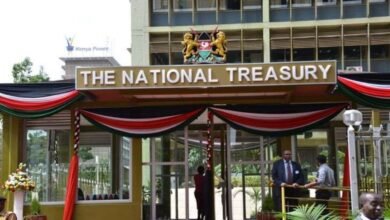
The Boda Boda sector generates one million direct jobs for riders as it rapidly evolves into a money-spinner generating billions of shillings to the taxman each year.
According to a survey by listed firm Car & General (C&G), which sells motorcycles, replacement parts, and other engineering equipment, the sector indirectly supports six million jobs or nearly 10 percent of the country’s population
C&G estimates that each rider makes an average of Ksh1,000 per day from an average of 15 rides, translating to a daily income of Ksh1 billion or Ksh.365 billion annually.
This is equivalent to 3.4 percent of Kenya’s Gross Domestic Product (GDP) and almost matches the output of Kenya’s education sector, whose contribution to GDP stands at 3.8 percent.
Fuel taxes from Boda Bodas, which consume an average of Ksh 300 worth of petrol every day, bring in roughly Ksh 60 billion to the Treasury each year.
This amounts to Ksh 300 million in fuel per day, with Ksh 163 million going to the government in the form of taxes, levies, and other fees.
“There are 1.2 million riders in Kenya. Nine out of 10 are used for commercial purposes, representing over one million jobs created. Seventy-five percent are youth and six percent are female,” says the C&G report.
Motorcycle Assemblers Association of Kenya (MAAK) chairman Isaac Kalua notes that in 2014 Boda Boda operators and other motorcyclists contributed close to Ksh 2.2 billion to the exchequer.
‘This was beside the fact that close to 100,000 bikes may be out of road due to various accidents and breakage’, added Dr. Kalua.
With an estimation of 500,000 motorbikes on Kenyan roads, over 99 percent are boda-boda. About 14.4 million people are riding them every day.
However, the motorcycle business was put in the spotlight this week after some riders assaulted a female motorist on Nairobi’s Wangari Maathai Road (formerly Forest Road), sparking widespread condemnation of the so-called Boda Boda menace.
This incident prompted President Uhuru Kenyatta to order a nationwide crackdown on all Boda Boda operators but has since been suspended to pave way for reform.
They have been given 60 days to obtain smart licenses and join registered SACCOs, which will in turn be required to maintain a digital register of their members for easier identification.
Experts back call for enhanced regulation of Boda Bodas, arguing that the sector has become too important economically to be left in the hands of unruly operators.
“Because of this behavior by the Boda Boda guys, there is a good reason to come up with some regulation, not necessarily using the police but rather one based on economic fundamentals so that we can make the sector more competitive, efficient and fit for purpose,” said Prof XN Iraki, an economist at the University of Nairobi.
“There are two approaches to use. First is self-regulation by the operators themselves and the other is normal government oversight, both avoiding stifling the sector.”
The push for tighter regulation has come amid rapid growth in motorcycle registrations and their increased use in public transport.
Official data shows annual registrations have doubled over the past five years to stand at 252,601 compared to 123,539 new listings in 2016.
Motorcycles are fairly affordable, retailing at between Ksh.65,000 and Ksh.130,00, enabling many youth to acquire them for business.
Kenya, like most African countries, offers a huge potential for motorcycle ride-hailing firms due to low personal car ownership, rapidly expanding populations and a lack of efficient mass transport systems in fast-growing cities.
While informal motorcycle taxis have been around for years, the new companies are hoping to win a market share by offering trained, accountable drivers and the convenience of booking rides through a mobile app.
According to Prof Iraki, the sector is now ripe for formalization due to the big multiplier effect that it carries in job creation.
“We need to expand the thinking around Boda Bodas where, for instance, investment in assembly would have a massive effect on the manufacturing sector. We ought to be looking at upgrading riders’ skills, manufacturing bikes and making spare parts and so on,” he said.





